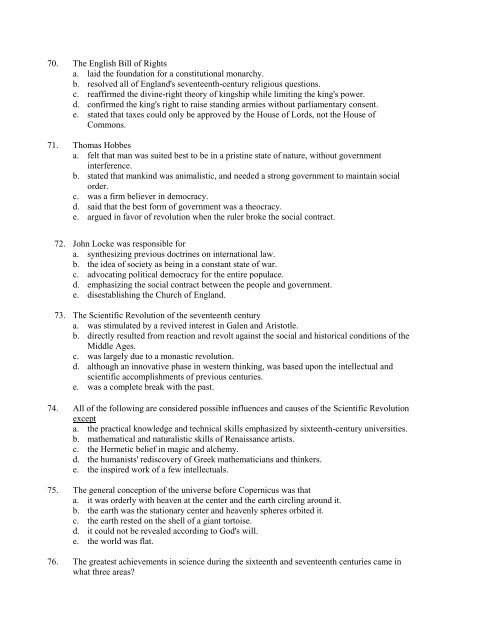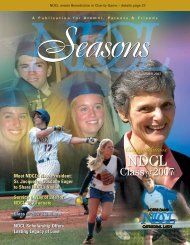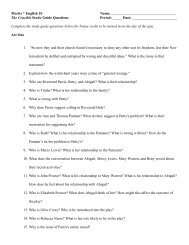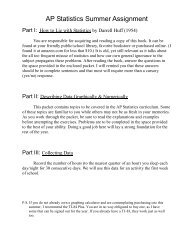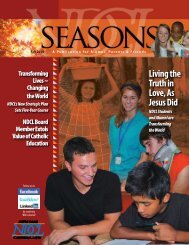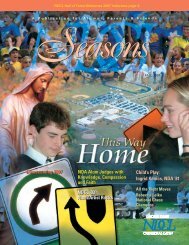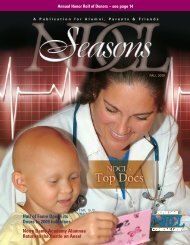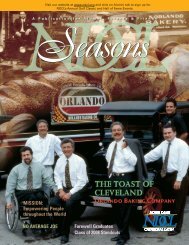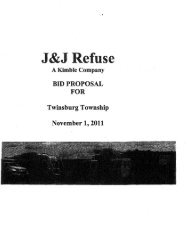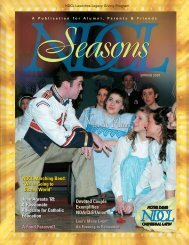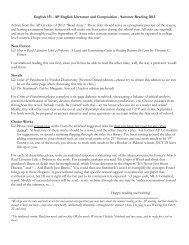AP European History Mid Term Exam-Take Home ... - eSchoolView
AP European History Mid Term Exam-Take Home ... - eSchoolView
AP European History Mid Term Exam-Take Home ... - eSchoolView
Create successful ePaper yourself
Turn your PDF publications into a flip-book with our unique Google optimized e-Paper software.
70. The English Bill of Rightsa. laid the foundation for a constitutional monarchy.b. resolved all of England's seventeenth-century religious questions.c. reaffirmed the divine-right theory of kingship while limiting the king's power.d. confirmed the king's right to raise standing armies without parliamentary consent.e. stated that taxes could only be approved by the House of Lords, not the House ofCommons.71. Thomas Hobbesa. felt that man was suited best to be in a pristine state of nature, without governmentinterference.b. stated that mankind was animalistic, and needed a strong government to maintain socialorder.c. was a firm believer in democracy.d. said that the best form of government was a theocracy.e. argued in favor of revolution when the ruler broke the social contract.72. John Locke was responsible fora. synthesizing previous doctrines on international law.b. the idea of society as being in a constant state of war.c. advocating political democracy for the entire populace.d. emphasizing the social contract between the people and government.e. disestablishing the Church of England.73. The Scientific Revolution of the seventeenth centurya. was stimulated by a revived interest in Galen and Aristotle.b. directly resulted from reaction and revolt against the social and historical conditions of the<strong>Mid</strong>dle Ages.c. was largely due to a monastic revolution.d. although an innovative phase in western thinking, was based upon the intellectual andscientific accomplishments of previous centuries.e. was a complete break with the past.74. All of the following are considered possible influences and causes of the Scientific Revolutionexcepta. the practical knowledge and technical skills emphasized by sixteenth-century universities.b. mathematical and naturalistic skills of Renaissance artists.c. the Hermetic belief in magic and alchemy.d. the humanists' rediscovery of Greek mathematicians and thinkers.e. the inspired work of a few intellectuals.75. The general conception of the universe before Copernicus was thata. it was orderly with heaven at the center and the earth circling around it.b. the earth was the stationary center and heavenly spheres orbited it.c. the earth rested on the shell of a giant tortoise.d. it could not be revealed according to God's will.e. the world was flat.76. The greatest achievements in science during the sixteenth and seventeenth centuries came inwhat three areas?


